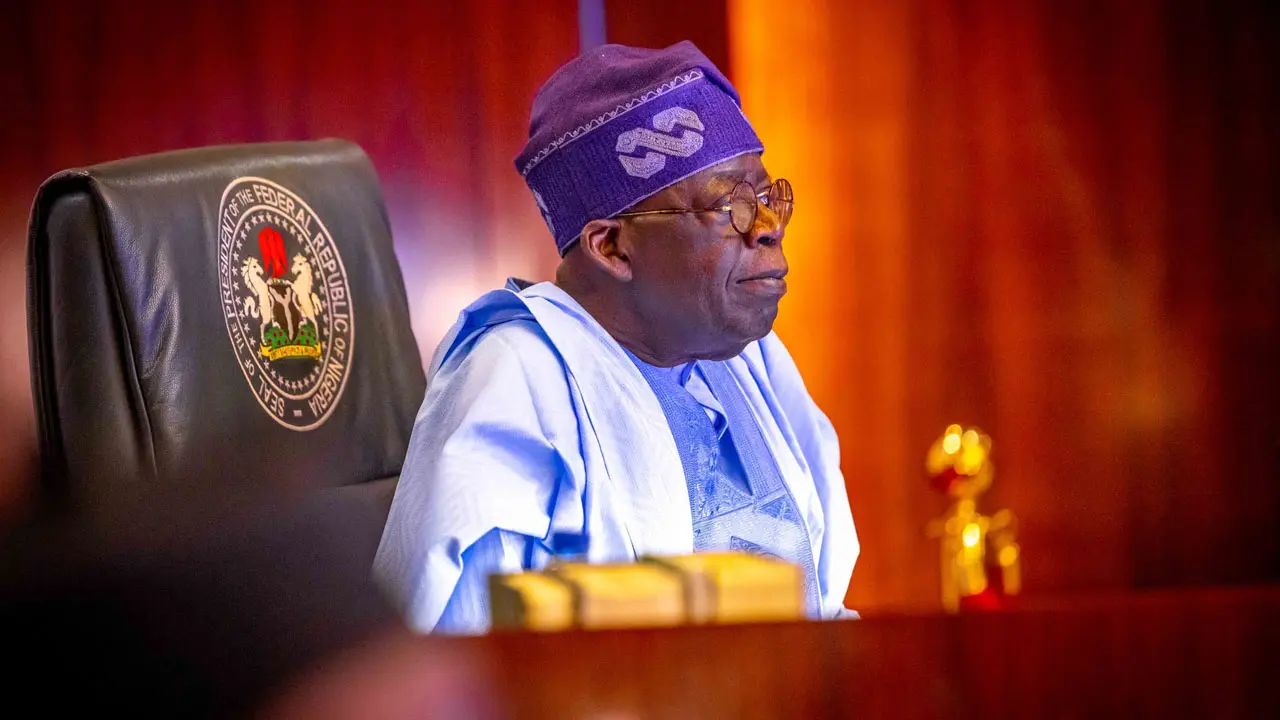Mr President, Nigerians have walked with you thru a season of fireplace. They’ve endured subsidy elimination, overseas alternate shocks, inflation that eats wages earlier than payday, and reforms which have stretched family budgets to their breaking level. They did so since you requested for time — time to rebuild, to reform, to revive.
Now, after this tough yr of sacrifice, the federal government has confirmed that it’ll introduce a 15 per cent import obligation on petrol and diesel. Mr President, this choice dangers turning religion into fatigue. It’s not reform, it’s relapse — and it may undo the delicate belief Nigerians have positioned in your management.
A Coverage Born of Misdirection
In line with the leaked memorandum from the State Home dated October 10, 2025, the brand new tariff is framed as a “market-responsive import framework” meant to “safeguard native refining capability and stabilise the downstream market.” However Nigerians are not fooled by the language of safety when its result’s punishment.
This tariff, utilized to the Price, Insurance coverage, and Freight (CIF) worth of imported gasoline, will elevate the touchdown price of petrol by roughly ₦150–₦175 per litre. Meaning the typical pump value may surge towards ₦970 or extra per litre, a direct hit to each family, each transport operator, each meals vendor, each generator proprietor.
This coverage claims to “defend native refineries,” however the actuality is completely different: it protects one refinery, the Dangote Refinery, on the expense of a complete nation. The refinery, which at the moment provides solely about 22 million litres every day, can’t meet Nigeria’s 50 million-litre every day consumption. So the remainder will nonetheless come from imports — however now, imports that should bear a punitive 15 per cent tax, making certain Dangote’s petrol appears cheaper, even when it isn’t.
That’s not protectionism; it’s manipulation dressed as coverage.
Inside that closed circle lies the brand new “gasoline cabal,” a set of highly effective businessmen who’ve aligned themselves with the refinery to dictate who lifts petrol, who will get entry, and at what value. The market, which deregulation was meant to free, is now being redesigned for management.
We’re instructed this tariff will “stabilise the market.” However, as historical past teaches us, monopolies do not stabilise; they suffocate. In cement, sugar, and now gasoline, the sample stays the identical: set up dominance, then block rivals via state-backed laws. What we’re witnessing is not industrial coverage — it’s industrial seize.
Each naira added to gasoline costs ripples throughout the economic system. Transport fares rise by 20–30%. Meals costs comply with. Inflation deepens. The center class shrinks additional. The poor lose what little dignity inflation has not already taken. And all this, within the identify of defending an investor who constructed a “state-of-the-art” refinery however can’t but provide half the nation’s wants.
Financial coverage is not a courtroom for the highly effective to plead for privilege. It’s a covenant between the federal government and the individuals. And that covenant is damaged when coverage tilts towards a single enterprise.
Why Safety Does Not Construct Effectivity
When international oil markets confronted deregulation, from the US to South Korea, competitors — not tariffs — constructed resilience. Native refiners needed to innovate, not foyer for defense. Within the Nineteen Eighties, American refiners survived the worldwide glut not due to tariffs, however as a result of the market compelled them to be environment friendly, make investments, and adapt. South Korea’s chaebols, initially sheltered, grew to become environment friendly solely after the state opened competitors and eliminated protectionist crutches.
If a refinery constructed with international experience and billions in funding can’t compete with out authorities shields, then what’s it providing Nigerians? The identical Nigerians who’ve already not directly funded infrastructure via public concessions, waivers, and coverage privileges now face a second tax — on the pump.
The psychological compact between residents and the state depends upon equity. When individuals imagine that one man or one firm is being favoured at their expense, they cease seeing reform as progress. They see it as betrayal.
Economics of On a regular basis Struggling
Mr President, financial concept usually hides its human price. However behind each gasoline value improve lies a household’s rationed meal, a dealer’s collapsed margin, a farmer’s unaffordable transport. The sociology of hardship is cumulative — individuals can soak up one reform, maybe two, however a 3rd breaks religion.
Nigerians are affected person, however endurance is not infinite. Inflation, forex devaluation, and insecurity already weigh closely. A 15 per cent tariff on gasoline is not a correction — it’s cruelty sporting the masks of financial reform.
Those that drafted this proposal insist the tariff is “not revenue-driven” however “corrective.” But each indicator exhibits that the correction advantages one participant. The refinery’s personal petrol, as of October 20, lands at ₦929.72 per litre — dearer than the ₦802.44 touchdown price of imported petrol.
If native refining is actually environment friendly, why should or not it’s shielded from competitors? Why should the general public pay a premium to guard inefficiency? The promise of native refining was cheaper gasoline, not managed pricing.
Much more troubling, reviews verify that the Dangote Refinery itself has imported cargoes of gasoline in current weeks, claiming they had been “mixing parts.” If the nation’s premier refinery should import completed merchandise, how then can it declare safety from import competitors? Is it a refinery, a blender, or each?
The contradictions are too loud to disregard.
An Enchantment to Conscience and Widespread Sense
Mr President, Nigerians are not asking for perfection. They’re asking for equity. They’re asking that your reform legacy not be hijacked by those that commerce affect for coverage.
You’ve got usually spoken of restoring Nigeria’s credibility within the eyes of traders, residents, and the worldwide group. That credibility relies upon not on who we defend, however on what we defend — equity, transparency, and competitors.
You fought cabals earlier than; Nigerians bear in mind. They trusted that you’d by no means enable one other to rise beneath your watch, this time cloaked in refinery smoke. The check is right here again.
There are viable options that may safeguard each the refinery and the group: Foster competitors fairly than imposing safety—enable a number of refiners, importers, and entrepreneurs to function alongside each other. Improve transparency—make the associated fee construction and manufacturing capability of native refiners publicly accessible. Implement a gradual transition—introduce tariffs solely when home provide surpasses reliance on imports. Conduct unbiased critiques—empower the FCCPC and NMDPRA to guage whether or not the refinery’s pricing aligns with international requirements.
Mr President, each chief is examined by the counsel he retains. These urging this tariff are not defending your legacy; they’re defending their leverage. They’re not serving Nigeria; they’re serving themselves.
If this tariff goes ahead, it should not solely elevate costs but in addition gasoline resentment. It’ll feed the idea that authorities exists to guard the highly effective, not the individuals.
You continue to have the possibility to show in any other case. The Nigeria you promised, open, aggressive, compassionate, begins not with the insurance policies we announce, however with those we refuse to endorse once they betray the individuals’s belief.
Respectfully submitted
Rotimi Matthew
Coverage and Governance Analyst, Abuja










